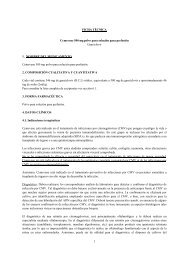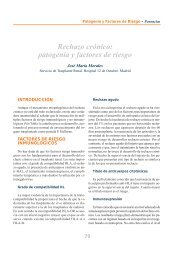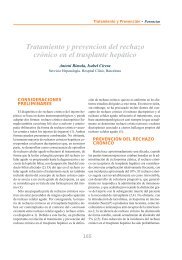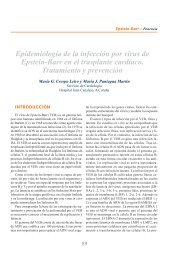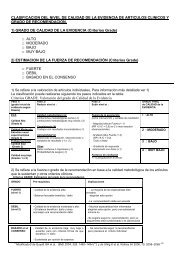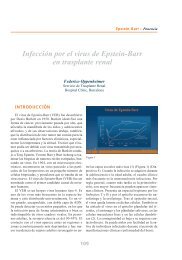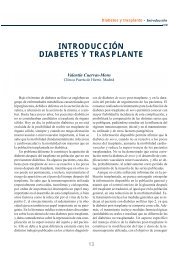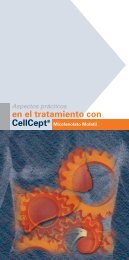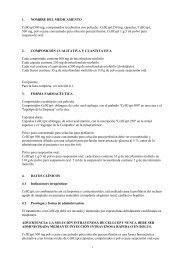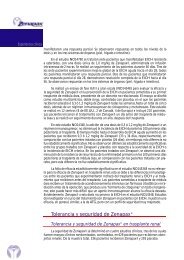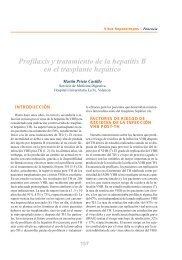Untitled - Roche Trasplantes
Untitled - Roche Trasplantes
Untitled - Roche Trasplantes
Create successful ePaper yourself
Turn your PDF publications into a flip-book with our unique Google optimized e-Paper software.
PROTOCOL BIOPSIES<br />
AND THE DIAGNOSIS<br />
OF HUMORAL REJECTION<br />
M. Mengel<br />
INTRODUCTION<br />
The humoral theory of allograft rejection proposes that an organ transplant is rejected<br />
by the action of antibodies, not cells. However, for the last three decades, T cells have<br />
been in the main focus of transplant research. T cells are regarded to be the pivotal effector<br />
and regulatory cells in allograft rejection. This conception was based on early findings<br />
in animal models and humans that T cell depletion prevents allograft rejection.<br />
Considerable therapeutic success was achieved by modern drugs suppressing T cells<br />
and improving short-term allograft survival to >90% in the first year after transplantation.<br />
Already in 1990, Halloran et al. drew attention to anti-donor antibodies as a further cause<br />
of severe allograft dysfunction. Still today a considerable percentage of renal allografts<br />
undergo episodes of acute rejection, frequently leading to chronic rejection and subsequent<br />
graft lost. However, against the background of modern, very effective anti-T cell<br />
immunosuppression an continuously increasing number of recent publications reflect a<br />
crucial role of antibodies (humorale rejection) besides T cells (cellular rejection) in renal<br />
allograft rejection.<br />
This overview focuses on the morphological findings in acute and chronic humoral (antibody-mediated)<br />
rejection in renal allograft biopsies. The mechanisms of antibody-mediated<br />
allograft injury and graft resistance to immunological injury (i.e., accommodation)<br />
will be described to stimulate the discussion of new therapeutical strategies in case of<br />
humoral rejection.<br />
51



